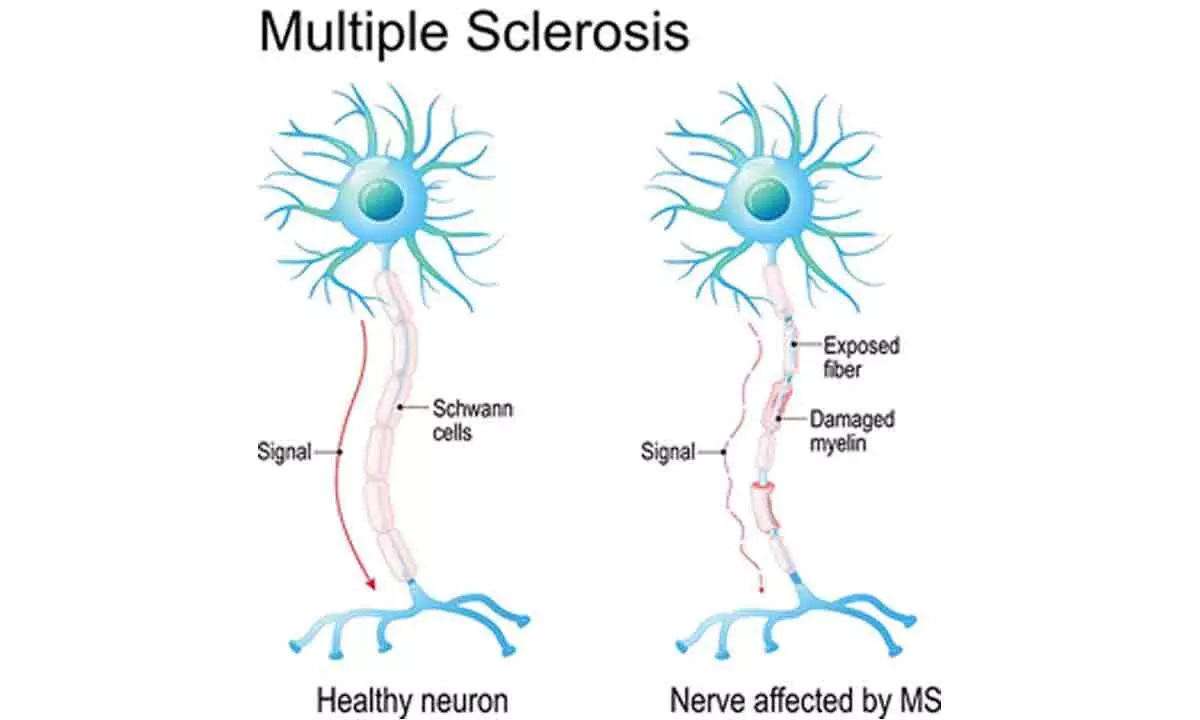New stem cell therapy may halt multiple sclerosis progression
Share :

An injection of a type of stem cell into the brains of patients living with progressive multiple sclerosis (MS) is safe, well-tolerated, and has a long-lasting effect that appears to protect the brain from further damage, show initial results of clinical trial.
London : An injection of a type of stem cell into the brains of patients living with progressive multiple sclerosis (MS) is safe, well-tolerated, and has a long-lasting effect that appears to protect the brain from further damage, show initial results of clinical trial.
The study led by an international team is a first-in-human, early-stage clinical trial that involved injecting neural stem cells directly into the brains of 15 patients with secondary MS, and is a step towards developing an advanced cell therapy treatment for progressive MS.
Their findings were published in the journal Cell Stem Cell.
"We desperately need to develop new treatments for secondary progressive MS, and I am cautiously very excited about our findings, which are a step towards developing a cell therapy for treating MS," said Professor Stefano Pluchino from the University of Cambridge, who co-led the study with researchers at Milan Bicocca and Hospital Casa Sollievo della Sofferenza in Italy.
Over 2 million people live with MS worldwide, and while treatments exist that can reduce the severity and frequency of relapses, two-thirds of MS patients still transition into a debilitating secondary progressive phase of disease within 25-30 years of diagnosis, where disability grows steadily worse.
In MS, the body’s own immune system attacks and damages myelin, the protective sheath around nerve fibres, causing disruption to messages sent around the brain and spinal cord. The injected stem cells were derived from cells taken from brain tissue from a single, miscarried foetal donor.
The team followed the patients over 12 months, during which time they observed no treatment-related deaths or serious adverse events. While some side-effects were observed, all were either temporary or reversible.
All the patients showed high levels of disability at the start of the trial -- most required a wheelchair, for example -- but during the 12 month follow up period, none showed any increase in disability or a worsening of symptoms. None of the patients reported symptoms that suggested a relapse and nor did their cognitive function worsen significantly during the study.
Overall, the researchers said, this points to a substantial stability of the disease, without signs of progression, though the high levels of disability at the start of the trial make this difficult to confirm.
"We recognise that our study has limitations -- it was only a small study and there may have been confounding effects from the immunosuppressant drugs, for example -- but the fact that our treatment was safe and that its effects lasted over the 12 months of the trial means that we can proceed to the next stage of clinical trials," Pluchino said.
The researchers also assessed a subgroup of patients for changes in the volume of brain tissue associated with disease progression. They found that the larger the dose of injected stem cells, the smaller the reduction in this brain volume over time. They speculate that this may be because the stem cell transplant dampened inflammation.













